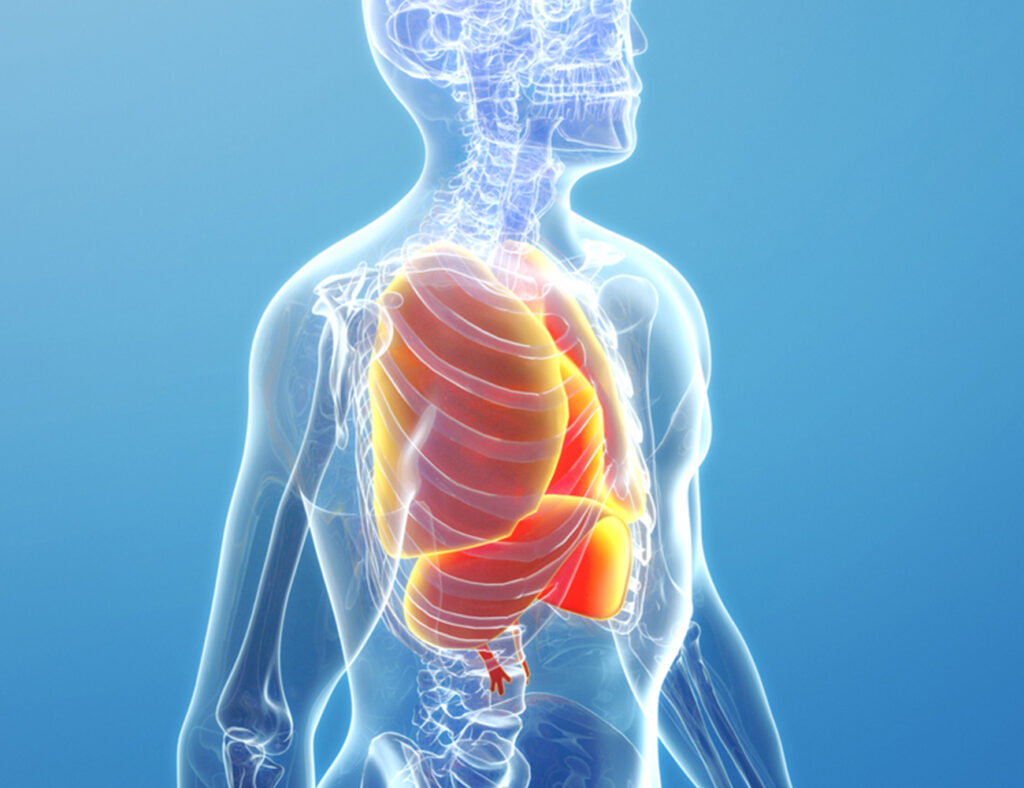For more information on how we can help you, schedule an appointment with one of our specialists
Learn more about the scientific basis of our work at Novastem here.

Asthma is a chronic (long-term) lung disease. It affects the airways, the tubes that carry air to and from the lungs. When you have asthma, your airways can become inflamed and narrow. This can cause wheezing, coughing and chest tightness. When these symptoms are worse than usual, it is known as an asthma attack or asthma flare-up.
It is an increasingly common disease among children and young people. It is estimated that 5% of the adult population and 10% of children and adolescents in industrialized countries suffer from it, and in many cases the disease appears as a response to certain allergy-producing stimuli: pollen, dust mites, cat and dog fur particles, smoke, cold air, certain foods or food additives.
We have stem cell treatments to treat asthma. For more information on how we can help you, schedule an appointment with one of our specialists.
The exact cause of asthma is not known. It is likely that genetics and environment influence who gets asthma.
An asthma attack can occur when you are exposed to an asthma trigger. A trigger is something that can bring on or worsen asthma symptoms. Different triggers can cause different types of asthma:
Symptoms of asthma include:
These symptoms can range from mild to severe. They may occur every day or only once in a while.
When you have an asthma attack, your symptoms get much worse. Attacks can come on gradually or suddenly. Sometimes they can be life-threatening. They are more common in people who have severe asthma. If you have asthma attacks, you may need a change in your treatment.
If you have asthma, you and your healthcare provider will create a treatment plan. The plan will include ways to control your symptoms and prevent attacks, including:
Trigger avoidance strategies: For example, if tobacco smoke is a trigger for you, you should not smoke or allow others to smoke in your home or car.
Quick-relief medications, also called rescue medications: These help prevent symptoms or relieve symptoms during an asthma attack. They include an inhaler to carry with you at all times. May also include other types of medicines that work quickly to help open your airways.
Controller medications: These are taken every day to help prevent symptoms. They work by reducing airway inflammation and preventing airway narrowing.
If you have a severe attack and quick-relief medications do not work, you will need emergency care.
Your health care professional can adjust your treatment until your asthma symptoms are controlled.
Sometimes asthma is severe and cannot be controlled with other treatments. If you are an adult with uncontrolled asthma, in some cases your provider may suggest bronchial thermoplasty. This is a procedure that uses heat to shrink the smooth muscle in the lungs. The contraction of the muscle reduces the ability of the airways to contract and allows you to breathe more easily. The procedure has some risks, so it is important to discuss them with your doctor.
At Novastem we have stem cell treatments to treat Asthma. For more information on how we can help you, schedule an appointment with one of our specialists.
Chronic obstructive pulmonary disease (COPD) and asthma are two conditions that tend to be confused.
They produce similar symptoms, such as wheezing, coughing and shortness of breath. However, the two conditions are quite different. COPD is a general term used to identify a group of progressive respiratory diseases that include chronic bronchitis and emphysema. These diseases cause reduced airflow due to inflammation in the airways. They can also worsen over time.
Asthma can occur at any age, with most diagnoses coming in childhood. Most people with COPD are at least 45 years old when they are diagnosed.
More than 40% of people with COPD also have asthma, and the risk of having both conditions increases with age.
It is not clear what causes asthma other than genetics, but asthma attacks often result from exposure to triggers such as physical activity or odors. These factors can make breathing problems worse.
The most common cause of COPD is smoking. In fact, smoking accounts for up to 9 out of 10 COPD-related deaths.
The goal of treatment for asthma and COPD is to reduce your symptoms so you can maintain an active lifestyle.
Adult stem cell therapy is used to decrease the inflammatory response in the lungs to improve the prognosis of the disease. These cells are responsible for participating in tissue homeostasis and regeneration after damage and will be located within the lung in the distal airways, or in distant sites such as the blood, bone marrow and other sites. The lung can respond to injury and stress by activation of cell populations or by replacement of lost cells and Bronchial Asthma can be redeemed.
Over the years, numerous attempts have been made to discover medical and non-medical treatment options for this condition. In some cases, medical treatments have led to increased survival and improved quality of life, and options for non-medical therapies have emerged.
Novastem’s goal with our treatments is to reverse the lack of functionality, eliminating pain and allowing you to enjoy 100% of daily activities and life again.
At Novastem we use mesenchymal stem cells derived from bone marrow, mesenchymal stem cells derived from Wharton’s jelly and also platelet lysate. The application of the treatment is intravenous and inhalation of the cell concentrate is also possible.
Novastem has the strictest acceptance protocols to treat a patient, we perform laboratory studies before each therapy.
Reviewed by: Vanessa Felix, MD
Last Updated: October 31st, 2022
Learn more about the scientific basis of our work at Novastem here.
REQUEST YOUR MEDICAL
TELEMEDICINE
CONSULTATION
Estimated Time: 30 mins | Consult Fee: $55 USD